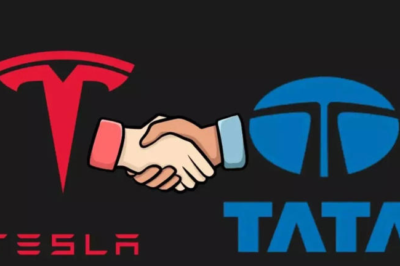
- Tata Group companies are already key suppliers to Tesla, contributing to $2 billion in components in FY24.
- Tesla is shifting its supply chain away from China and Taiwan, with India emerging as a key alternative.
- Tesla’s potential manufacturing entry into India could disrupt the local EV market, challenging Tata Motors’ dominance.
Why Is Tesla Turning to India?
Tesla, the world’s most valuable electric carmaker, is expanding its reliance on Indian suppliers, and Tata Group is at the center of this shift. Tata AutoComp, Tata Consultancy Services (TCS), Tata Technologies, and Tata Electronics have already integrated into Tesla’s supply chain, providing crucial components such as electric motors, gearboxes, and high-value electronics.
This move is part of Tesla’s strategy to reduce dependence on China and Taiwan after pandemic-related disruptions. The company is actively instructing suppliers to shift production to India, which is fast emerging as a global manufacturing hub for EV components. Other Indian firms, including Bharat Forge, Sona BLW, and Motherson, are also benefiting from Tesla’s growing footprint in the country.
Will Tesla Set Up a Factory in India?
Tesla is in talks with multiple Indian states—Gujarat, Tamil Nadu, Maharashtra, Telangana, and Rajasthan—for potential manufacturing sites. The company is evaluating government incentives such as tax concessions and import duty waivers to finalize its plans. If Tesla sets up a factory in India, it would significantly boost local manufacturing, create jobs, and attract further investment in the EV sector.
However, Tesla’s strict confidentiality agreements mean that concrete details remain scarce. Still, industry insiders believe that Tesla’s deepening supply chain ties with Indian companies indicate a long-term commitment.
What Does This Mean for Tata Motors?
While Tata Motors is currently the leader in India’s EV market, selling the most electric cars in the country, Tesla’s entry could change everything. The company was already facing challenges due to reduced government subsidies and market slowdowns. If Tesla begins local production, Indian consumers will have more choices, intensifying competition and potentially affecting Tata Motors’ sales.
Despite these challenges, Tesla’s growing reliance on Indian suppliers strengthens the country’s position in the global EV industry. With more manufacturing shifting to India, the nation is poised to become a critical player in the future of electric vehicles.








































Leave a Reply